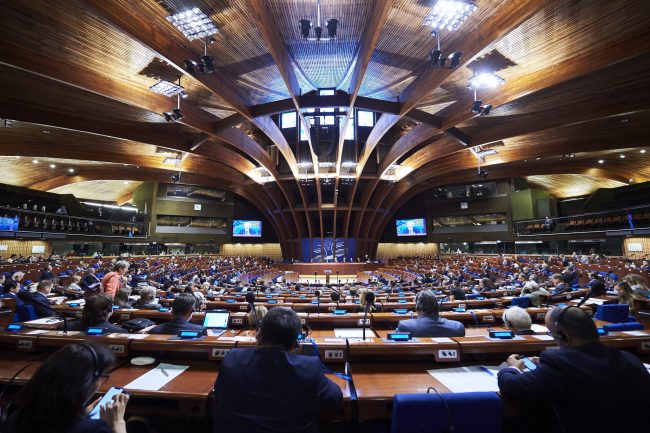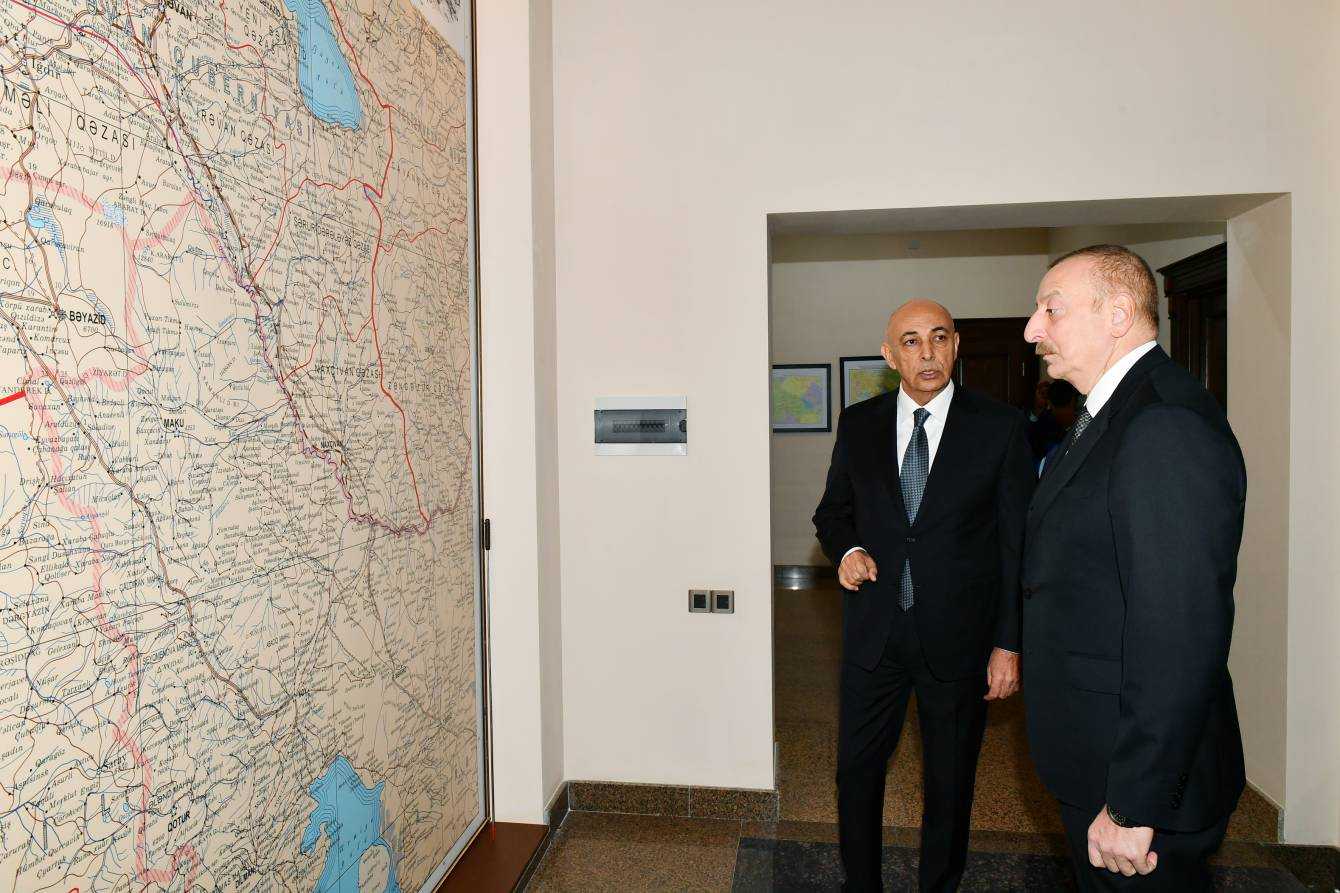

 An internal inquiry by the Council of Europe has alleged that several former and current MPs from the body’s parliamentary assembly engaged in paid lobbying, while others were strongly suspected of conducting ‘activities of a corruptive nature’ in favour of Azerbaijan.
An internal inquiry by the Council of Europe has alleged that several former and current MPs from the body’s parliamentary assembly engaged in paid lobbying, while others were strongly suspected of conducting ‘activities of a corruptive nature’ in favour of Azerbaijan.
According to the report, which was prepared by three former judges from the UK, France, and Sweden and published on 22 April, a number of former MPs at the Parliamentary Assembly of the Council of Europe (PACE) received money to lobby for Azerbaijan during PACE’s work. The report also said that several current and former members may have engaged in ‘corruptive’ activities in favour of Azerbaijan.
[Read more on OC Media: Council of Europe to investigate ‘Azerbaijani Laundromat’ bribery allegations]
‘With regard to the performance of lobbying activities in PACE, the Investigation Body found that a number of former PACE MPs who had performed such activities had acted contrary to the PACE Code of Conduct. As to the corruptive activities in favour of Azerbaijan, the Investigation Body established that there was a strong suspicion that certain current and former members of PACE had engaged in activity of a corruptive nature’, the report said.
The Council of Europe is one of Europe’s oldest human rights organisations, set up in 1949 to safeguard human rights, democracy, and the rule of law. It consists of 47 European member states, with the notable exception of Belarus. Its parliamentary arm, the Assembly (PACE), is made up of 324 members from the national parliaments of the Council’s member states and oversees the European Court of Human Rights.
According to the report, the MPs accused of breaching PACE’s Code of Conduct were Pedro Agramunt (Spain), Samad Seyidov (Azerbaijan), Tadeusz Iwiński (Poland), Augustín Conde (Spain), Cezar Florin Preda (Romania), Stefan Schennach (Austria), Alain Destexhe (Belgium), and Robert Walter (UK).
The investigation also established that the following MPs performed lobbying activities in favour of Azerbaijan: Eduard Lintner (Germany), Stef Goris (Belgium), Jaakko Laakso (Finland), Karin S. Woldseth (Norway), and Göran Lindblad (Sweden).
The report said there were also ‘substantial grounds’ to believe that Luca Volontè (Italy) and Elkhan Suleymanov and Muslum Mammadov (Azerbaijan) engaged in ‘activity of a corruptive nature’, with a ‘strong suspicion’ that Pedro Agramunt was involved.
Six current and former members also failed to comply with the investigation’s request to provide written statements, while seven refused to take part in hearing sessions, including Agramunt, Suleymanov, Mammadov, and Volontè.
Head of Azerbaijan’s delegation to PACE, Samad Seyidov, rejected the report’s findings during the Assembly’s 23 April session, calling it an attempt ‘to present [Azerbaijan] in an unfair way’, and adding that a ‘hunt’ was taking place.
‘Caviar diplomacy’
The investigation was launched in 2017 and followed Azerbaijan’s alleged efforts to silence criticism in PACE in exchange for gifts and money, which became widely known as ‘caviar diplomacy’ back in 2012.
According to the report, the allegations gained momentum following criticism of PACE’s election observation mission during the 2013 presidential election in Azerbaijan and the opening of a criminal case against Luca Volontè, former Italian MP and member of the Italian delegation to PACE. Volontè was suspected of having accepted over €2 million ($2.4 million) from former members of the Azerbaijani delegation to PACE and ‘other unidentified political actors’ in exchange for supporting the interests of the Azerbaijani government in the Council of Europe.
Volontè voted down a resolution in 2013 criticising Azerbaijan for its human rights record. The resolution was rejected by the Assembly by 125 votes to 79, with 20 abstentions.
‘In September 2017 the Organised Crime and Corruption Reporting Project (OCCRP), in association with Transparency International and several European media outlets, published a report alleging the existence of a complex money-laundering scheme involving $2.9 billion under which members of the Azerbaijani ruling elite had used a secret slush fund to pay off European politicians, buy luxury goods, launder money, and otherwise benefit themselves. Allegations were also made that some members and former members of PACE and the European Parliament had been involved in this scheme’, the report reads.
[Read more on OC Media: Investigation reveals secret $3 billion UK-based Azerbaijani slush fund]
The 22 April report played down allegations that PACE members received gifts from Azerbaijan to influence the Assembly’s work, but stressed that such gifts need to be declared for ensuring transparency.
‘Those gifts were in general symbolic and considered to be courtesy gifts, which were common in many countries and to which no particular importance was attached. It was also not possible to establish that such gifts were given in exchange for the agreement of a particular MP or secretariat member to act in a particular way. In these circumstances, the Investigation Body did not find that the receipt of these gifts played a prominent role in the PACE activities concerning Azerbaijan’, the report reads.
On 23 April, several PACE members requested an urgent debate on the report’s findings, which was scheduled for 26 April.









